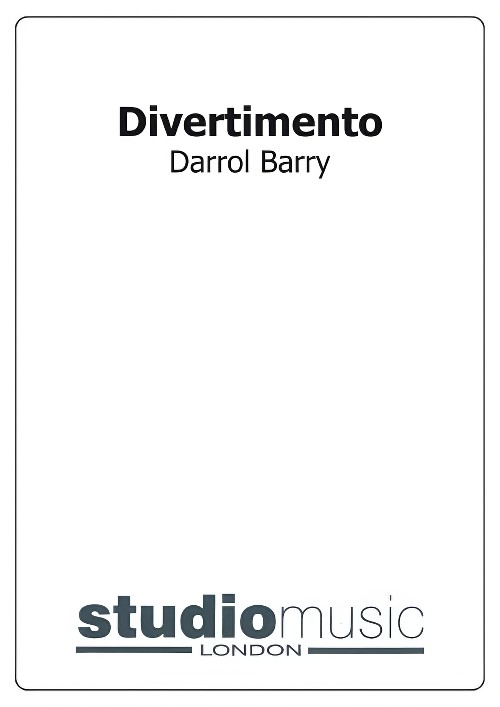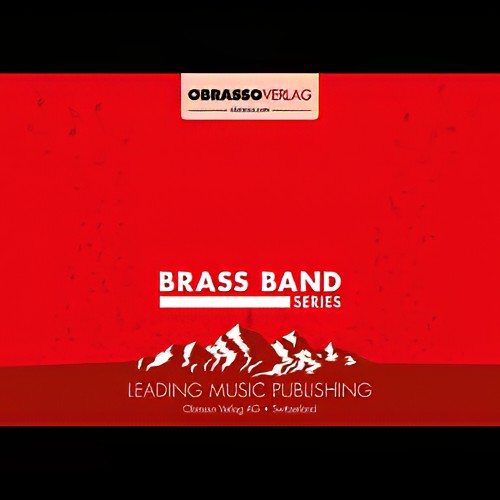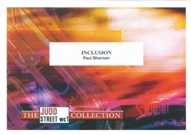Results
-
 £58.60
£58.60BREEZIN' DOWN BROADWAY! (Brass Band) - Richards, Goff
Medium - Includes: Another Opening, Another Show; There's No Business Like Show Business: Get Me To The Church On Time; Oklahoma!; That's Entertainment; Seventy Six Trombones.
Estimated dispatch 7-14 working days
-
 £69.99
£69.99CINEMANIA (Brass Band) - Finn, Robert
This music sounds as if it came straight off the cinema screen. However, there's no movie for this fantastic score! Just like EVERY good film score, this work also includes moving melodies, fast virtuoso passages and, last but not least, a romantic love theme. The instrumentation takes into account that a group may not be complete and this means that the piece can be played by practically every orchestra. Highly recommended for concerts and competitions.
Estimated dispatch 7-14 working days
-
 £19.99
£19.99Clarion Alarum (Brass Band - Score and Parts) - Dobson, Simon
Clarion Alarum: Fanfare No.1 for Brass Band is a short fanfare for brass band, contrasting the brilliance of the sound of cornets and trombones with the warmer tones of horns, euphoniums and tubas.Suitable for 1st Section Bands and aboveDuration: 2.30
Estimated dispatch 7-14 working days
-
 £69.95
£69.95DIVERTIMENTO (Barry) (Brass Band - Score and Parts) - Barry, Darrol
Especially published for the National Championships of Great Britain in 1989, this work is cast in three movements: Festival, Romance and March. A popular and engaging work at this level, it is no stranger to the contest platform, having been used as the Section 3 'Regional' test-piece in 1990, and the third tier of the Dutch and Australian Championships in 1995 and 1996 respectively.
Estimated dispatch 7-14 working days
-
 £32.95
£32.95DIVERTIMENTO (Barry) (Brass Band - Score only) - Barry, Darrol
Especially published for the National Championships of Great Britain in 1989, this work is cast in three movements: Festival, Romance and March. A popular and engaging work at this level, it is no stranger to the contest platform, having been used as the Section 3 'Regional' test-piece in 1990, and the third tier of the Dutch and Australian Championships in 1995 and 1996 respectively.
Estimated dispatch 7-14 working days
-
 £33.00
£33.00Dream Children (Brass Band - Score & Parts) - Elgar, Edward - Harris, Haydn
Classic Brass No.3
Estimated dispatch 7-14 working days
-
 £26.50
£26.50GRANDFATHER'S CLOCK (Euphonium/Brass Band) - Doughty, George
Euphonium & Brass Band. Please note: There are no percussion parts in this piece. Recorded on Polyphonic QPRL050D Harry Mortimer - A Tribute in Music
Estimated dispatch 7-14 working days
-
 £42.95
£42.95In Memoriam R.K (Brass Band Set - Score and Parts) - Howarth, Elgar
All England National Brass Band Championship 2007. Recored on Polyphonic QPRL226D Master Brass Volume 18, QPRL056D National Brass Band Championship 1992 played by Black Dyke.Composer's NoteRudolph Kempe, the German conductor, was much admired for this interpretations of late romantic music, particularly Mahler and Strauss. No such music exists in the brass band repertoire and this piece, deliberately written in pastiche style, serves both to fill the gap and as my own small tribute to one of the greatest musicians I have known.
Estimated dispatch 7-14 working days
-
 £50.90
£50.90In Terra La Guerra (Vocal (Soprano) and Piccolo Trumpet Duet with Brass Band - Score and Parts) - Scarlatti, Alessandro - Lorriman, Howard
No.2 from 7 Arias with Solo TrumpetDuration: 3.30
Estimated dispatch 7-14 working days
-
 £59.95
£59.95INCLUSION (Brass Band) - Sharman, Paul
2017 Butlins Mineworkers Contest Test Piece Second Section. Inclusion was commissioned by Bolsover District Council for the Bolsover Brass Band Summer School in July 2013, with funding from Arts Council England. The piece takes its theme from the fact that everybody, no matter what their background, should feel included in our churches and in society in general.
Estimated dispatch 7-14 working days
